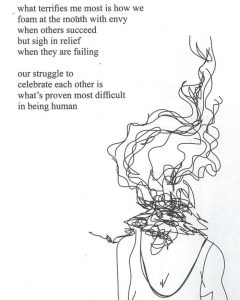Feminist Class Struggle: Elitism
By Hannah Prichard
“The only genuine hope of feminist liberation lies with a vision of social change which challenges class elitism”
Elitism is something I have been thinking a lot about lately. Many of my classes are centered around understanding the structures that stand in the way of equity. Elitism is one of those structures. In Introducing Elite Discourse: the Rhetorics of Status, Privilege, and Power written by Adam Jaworski and Crispin Thurlow, they discuss elitism in a way that I think can be applied here. They argue that elites are not the only ones that perform elitism. Although they are the ones that naturally benefit from it and actively encourage it, others also perform elitism. Elitism is determined structurally, culturally, and economically. Most people strive to be elite and we talk about the elite with reverence. Elitism can take many forms including wealth, power, racial identity, sexual orientation, and education. We all actively participate in this society which centers itself around the elite and therefore have our own biases about it. In Feminism is for Everybody, bell hooks argues that middle-class white women used the feminist movement to advance themselves while leaving their minority sisters behind. As the quote above states, as long as elitism permeates our belief systems we will be unable to liberate all women.
Is this even possible? To eradicate the social construction of elitism. Pessimistically, probably not, but I do think we have the capacity to lift up those around us. Although it is difficult to look past our biases, we should be more active in rethinking them and actively pushing against natural assumptions. Elitism may not be able to be broken down but that doesn’t mean other structures – valuable structures – can’t be lifted up. Something like grace and respect which I think permeates our society in ways we can’t see. It is easy to go on autopilot and not actively engage with other people in a meaningful way but I think it is incredibly important to show vulnerability and humility. We can control what we say and how we act toward others but we are only human and all of us make mistakes because of our biases. This makes it even more important to apologize and listen to how we can change.
